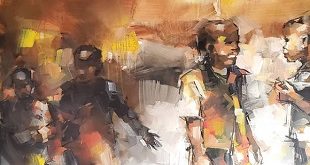
Port Louis, Mauritius | AFP | Jamaican reggae, the music of the oppressed which Bob Marley catapulted onto the global stage, won a coveted spot on the United Nations’ list of global cultural treasures Thursday.
UNESCO, the world body’s cultural and scientific agency, added reggae to its collection of “intangible cultural heritage” deemed worthy of protection and promotion, along with two dozen other traditions from around the world.
“This is a historic day. We are very, very happy,” enthused Jamaica’s Culture Minister Olivia Grange, speaking by phone from the island of Mauritius where the listings were announced.
“Anywhere you go and say you’re from Jamaica, they answer ‘Bob Marley,'” said Grange, adding that the distinction “underscores the importance of our culture and our music, whose theme and message is ‘one love, togetherness and peace.'”
UNESCO noted that while reggae started out as “the voice of the marginalised” it was “now played and embraced by a wide cross-section of society, including various genders, ethnic and religious groups.”
Its “contribution to international discourse on issues of injustice, resistance, love and humanity underscores the dynamics of the element as being at once cerebral, socio-political, sensual and spiritual,” Paris-based UNESCO added in a statement.
UNESCO is best known for its prestigious World Heritage List of outstanding cultural and natural sites, which include the Grand Canyon, the Great Wall of China and the Old City of Jerusalem.
Its Intangible Cultural Heritage List runs to hundreds of traditions from around the world — some of which are barely known beyond the borders of the country bidding to have it recognised.
While largely symbolic, inclusion on the list can serve to raise the profile of the country and the practice.
Among the other additions Thursday were the ancient Irish sport of hurling, the spring rituals of Kazakh horse breeders, including drinking fermented mare’s milk, and the Polish tradition of creating glittering Christmas creches.
“This is a special moment for anyone whose heart is set on caring for Polish heritage,” Culture Minister Piotr Glinski tweeted.
Ireland’s Gaelic Athletic Association (GAA) welcomed the honour bestowed on hurling — a fast-paced ball game played with carved wooden sticks which enjoys a mass following across the country.
“It reaffirms the fact that hurling is more than just a sport. It a national treasure; an ancient tradition that connects us to our Celtic past and a part of our DNA,” GAA president John Horan said.
? BREAKING#Reggae music of #Jamaica?? has just been inscribed on the #IntangibleHeritage List! Congratulations! ?
https://t.co/1SDzLr4U5F #LivingHeritage pic.twitter.com/7t1jkD2Z8n
— UNESCO (@UNESCO) November 29, 2018
– Hope to the oppressed –
Reggae emerged in the late 1960s out of Jamaica’s ska and rocksteady styles, also drawing influence from American jazz and blues.
It quickly became popular in the United States as well as in Britain, where many Jamaican immigrants had moved in the post-WWII years.
The style is often championed as a music of the oppressed, with lyrics addressing sociopolitical issues, imprisonment and inequality.
Reggae also became associated with Rastafarianism, which deified the former Ethiopian emperor Haile Selassie and promoted the sacramental use of ganja, or marijuana.
Jerome Levasseur, the director of the Bagnols Reggae Festival in southern France, said he expected the award would help “normalise” a music form that has always been a little marginalised because of its “whiff of cannabis and libertarian revolt.”
The 1968 single “Do the Reggay” by Toots and the Maytals was the first popular song to use the term reggae.
Marley and his group the Wailers then soared to fame on classic hits such as “No Woman, No Cry” and “Stir It Up.”
Peter Tosh, a core member of the Wailers, established a successful solo career with hits including “Legalize It,” while Desmond Dekker also enjoyed international success with the song “Israelites.”
Toots and the Maytals rose to prominence with “Pressure Drop” and Jimmy Cliff became an international sensation with “The Harder They Come,” also the title of a 1972 movie he starred in.
The reggae sound, with its heavy bass lines and drums, has influenced countless artists and inspired many genres including reggaeton, dub and dancehall.
The steady beats and smooth grooves have also proven key to hip-hop: Sister Nancy’s anthem “Bam Bam,” for example, has been heavily sampled by superstars like Kanye West, Lauryn Hill, Chris Brown and Jay-Z.
 The Independent Uganda: You get the Truth we Pay the Price
The Independent Uganda: You get the Truth we Pay the Price



